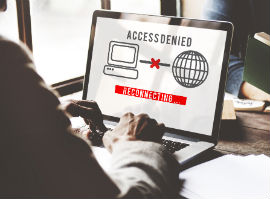The MPAA, RIAA, and various other copyright groups see pirate site blocking as one of the priorities for a US-UK trade deal. ISP blockades are already commonplace in the UK and the groups hope to achieve the same in America.
 US music and movie industry companies helped to get pirate sites blocked in countries all around the globe.
US music and movie industry companies helped to get pirate sites blocked in countries all around the globe.
On their home turf, however, pirate sites remain freely accessible.
After the SOPA protests, the blocking issue became a no-go issue in the US. Blocking efforts continued elsewhere though, including in the UK, where hundreds of pirate domains have been blocked.
Slowly but steadily, copyright holders now appear ready to reintroduce the idea of site blocking. Recent filings from Hollywood’s MPAA and the music industry’s RIAA believe that a new US-UK trade agreement is a good opportunity to do so.
The trade deal is required if the UK leaves the EU. To gauge what various stakeholders would like to see in a new agreement, the US Trade Representative (USTR) requested comments from the public.
Responding to this request the RIAA provides a list of priorities for the negotiations. This includes known talking points such as increasing liability for online platforms, but site-blocking also get a prominent mention.
In the UK copyright holders can request site-blocking injunctions fairly easily, and the RIAA would like to see the same in the US.
“Website blocking is a highly-effective form of copyright enforcement in the UK, and in numerous other jurisdictions around the world to combat infringing websites, and is a critical tool in ensuring legitimate trade in digital products and services,” the RIAA writes.
The music group adds that blocking has proven to be very effective in reducing traffic to the affected sites.
“Website blocking has been successful in the United Kingdom with 63 music sites being ordered to be blocked following music right holders’ initiatives. On average this produces a reduction in the use of those sites by UK users by approximately 75 percent.”
The RIAA further highlights the more recent “live” or “dynamic” blocking orders. These are currently targeting pirated football and boxing streams as they are broadcasted, and are limited to the duration of a season or event.
The music group is not alone in this request. The Digital Creators Working Group, which includes the Association of American Publishers, News Media Alliance, as well as the RIAA and MPAA, highlighted it as well.
In a separate submission to the USTR, the organizations list “website blocking, including “dynamic” blocking as provided in UK law,” as one of the priorities for a new trade deal.
The MPAA itself also sent in a list of priorities. In a carefully worded statement, which doesn’t mention the word “blocking,” it points out that the UK is ahead of the US in many regards when it comes to anti-piracy enforcement.
“With regard to online enforcement, a U.S.-UK agreement should include disciplines that can effectively address online piracy. In many ways, the UK has more nimbly and effectively responded to digital piracy than the U.S.,” MPAA notes.
The MPAA would like to pick the best elements from US and UK policy and combine them into an even more effective agreement.
“To promote a modernized IP trade framework, MPAA recommends moving to high-level language that reflects the fundamental principles on which the DMCA is based and which identifies key elements of the UK system, including no fault injunctive relief orders, as satisfying the standard.
“Such an approach would be fully consistent with U.S. law and preserve the high levels of protection in the UK’s enforcement framework,” the MPAA adds.
While blocking isn’t mentioned specifically, the “no fault injunctive relief orders” the Hollywood group refers to are generally used against ISPs to compel these companies to block pirate sites.
The submissions clearly show that major rightsholder groups are no longer avoiding the blocking issue in the US. This already became apparent a few weeks ago, when music industry outfits brought it up in comments sent to the Intellectual Property Enforcement Coordinator.
RIAA’s full submission is available here (pdf). MPAA’s response can be found here (pdf) and the Digital Creators Working Group’s submission is here (pdf).
